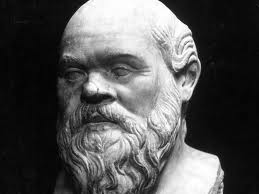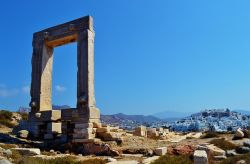
Socrates: The Enigmatic Philosopher
10-06-2013 18:23
Socrates, born in 469 B.C. was an Athenian philosopher, who despite the fact that he left no writings, is of landmark importance in Western thought. His philosophical thinking was directed more toward questions of ethics in life and his teachings profoundly influenced his pupil Plato whose work of dialogues is generally taken as being the more reliable report, both of the character and of the teachings of Socrates.
Socrates was the son of sculptor Sophroniscus and Phænarete. He received the usual elementary education in gymnastics and music and he may have planned to follow his father’s occupation but he apparently decided that he was more at ease with ideas than with stone.
Socrates was famous for his austerity: impervious to cold and fatigue, he almost always went barefoot, even over frozen winter ground at the siege of Potidaea. Socrates has been pictured as a short, snub-nosed person with widely spaced, perhaps protruding eyes and broad nostrils. The comic dramatists of the time, Aristophanes, Amipsias, and Eupolis, made him the subject of satirical dramas in which his physical traits as well as his dialectical habits were exaggerated.
Socrates began his philosophical studies with the ideas of Pythagoras, Parmenides, Heraclitus, Anaxagoras, Anaximander, Zeno, and others. Because of the conflicting ideas he found in these philosophies concerning the nature of the universe, he came to the conviction that more was to be gained by a study of justice and goodness.
Socrates himself taught no doctrine, claiming simply, “I know nothing.” This ignorance is the famous Socratic irony. Unlike other philosophers, he never founded a school or charged fees for lessons. At Athens he attracted a following of young, and since he took no money, his goal was evidently to prepare these students for public office by teaching them to think for themselves. His “Socratic method” consisted of asking questions in pursuit of definitions. This question and answer process forced the respondent to examine his own preconceptions, in a search for general truths. Socrates is famous for his theory of knowledge as the recollection of ideas, for his conception of the soul and his attempted proofs of the soul’s immortality, and for the theory of Ideas or universal forms, which Plato adopted and expanded.
Before he was forty Socrates had established himself as a remarkable teacher and philosopher; he was known and respected by many of the leading philosophers, politicians, and sophists of his time, including Protagoras, with whom he had one of his most famous debates.
In 403 B.C.E. Socrates defied his old pupil Kritias, who had seized power in the coup of the Thirty Tyrants when he refused to help them arrest a certain intended victim. Socrates was known for his antidemocratic sentiments, favored for a meritocracy, with power entrusted to a worthy ruling class.
In 399 B.C. the 70-year-old philosopher was prosecuted for corrupting the youth and for impiety. After making a nonconciliatory defense speech, Socrates was found guilty by the jury of Athenians and was sentenced to die by being given poison. The famous prison scenes recounted in Plato’s dialogue Phaedo.

















